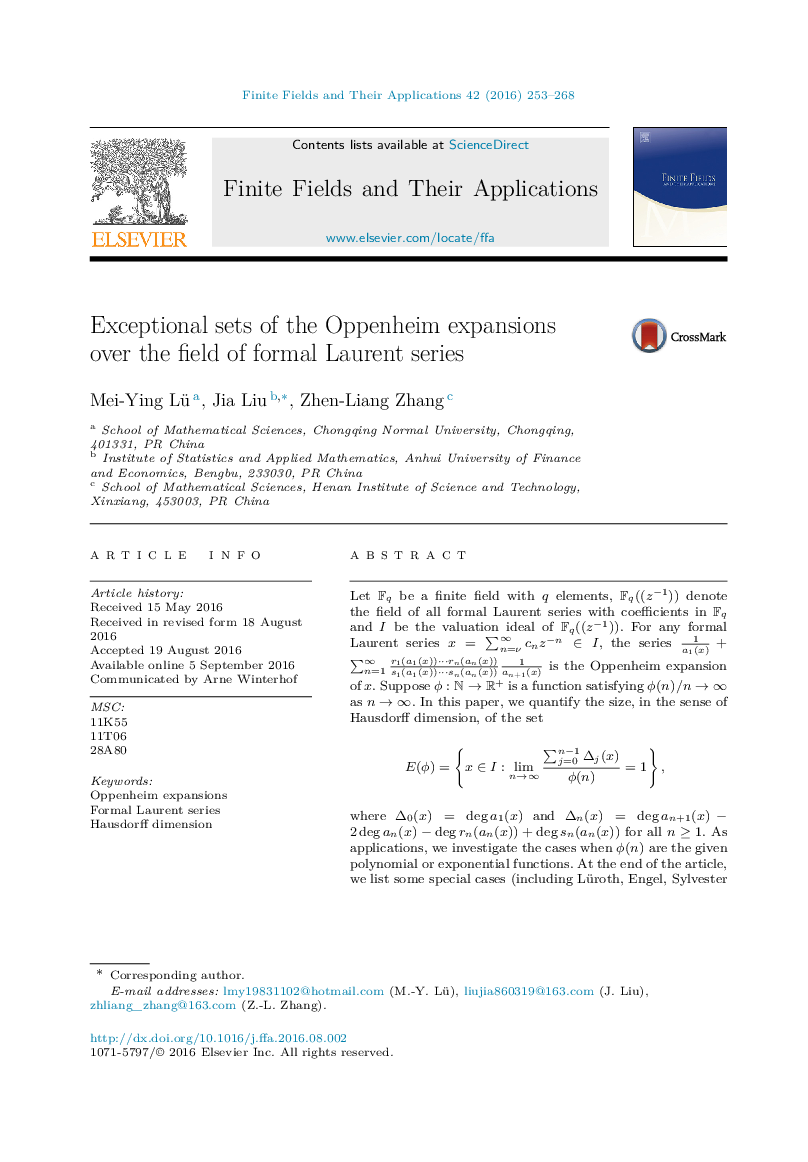| Article ID | Journal | Published Year | Pages | File Type |
|---|---|---|---|---|
| 4582646 | Finite Fields and Their Applications | 2016 | 16 Pages |
Let FqFq be a finite field with q elements, Fq((z−1))Fq((z−1)) denote the field of all formal Laurent series with coefficients in FqFq and I be the valuation ideal of Fq((z−1))Fq((z−1)). For any formal Laurent series x=∑n=ν∞cnz−n∈I, the series 1a1(x)+∑n=1∞r1(a1(x))⋯rn(an(x))s1(a1(x))⋯sn(an(x))1an+1(x) is the Oppenheim expansion of x . Suppose ϕ:N→R+ϕ:N→R+ is a function satisfying ϕ(n)/n→∞ϕ(n)/n→∞ as n→∞n→∞. In this paper, we quantify the size, in the sense of Hausdorff dimension, of the setE(ϕ)={x∈I:limn→∞∑j=0n−1Δj(x)ϕ(n)=1}, where Δ0(x)=dega1(x)Δ0(x)=dega1(x) and Δn(x)=degan+1(x)−2degan(x)−degrn(an(x))+degsn(an(x))Δn(x)=degan+1(x)−2degan(x)−degrn(an(x))+degsn(an(x)) for all n≥1n≥1. As applications, we investigate the cases when ϕ(n)ϕ(n) are the given polynomial or exponential functions. At the end of the article, we list some special cases (including Lüroth, Engel, Sylvester expansions of Laurent series and Cantor infinite products of Laurent series) to which we apply the conclusions above.
